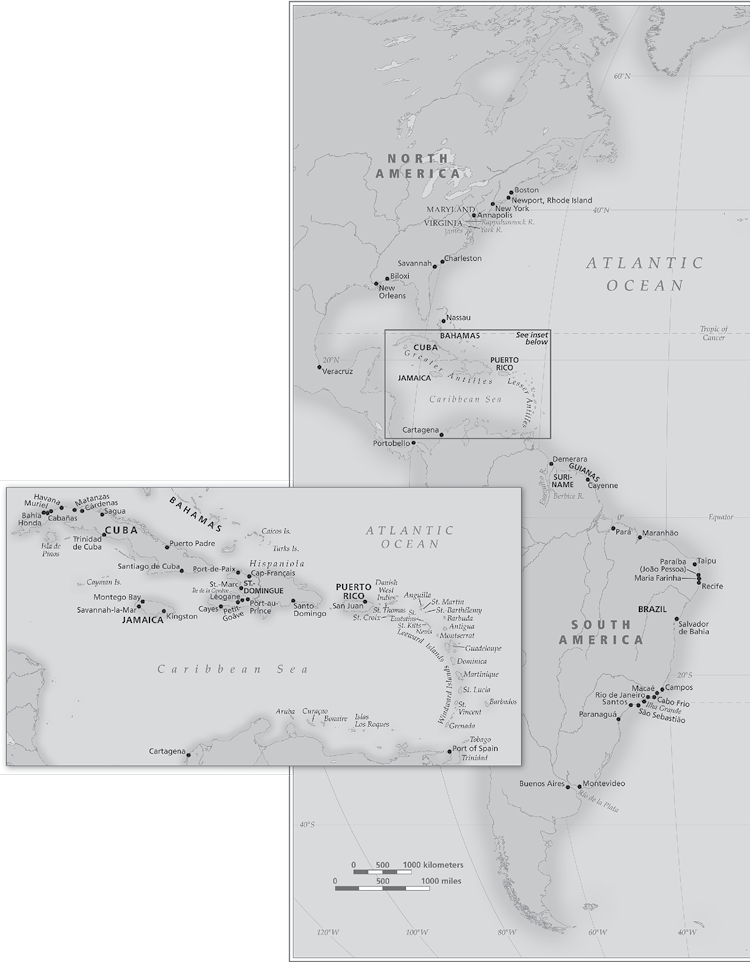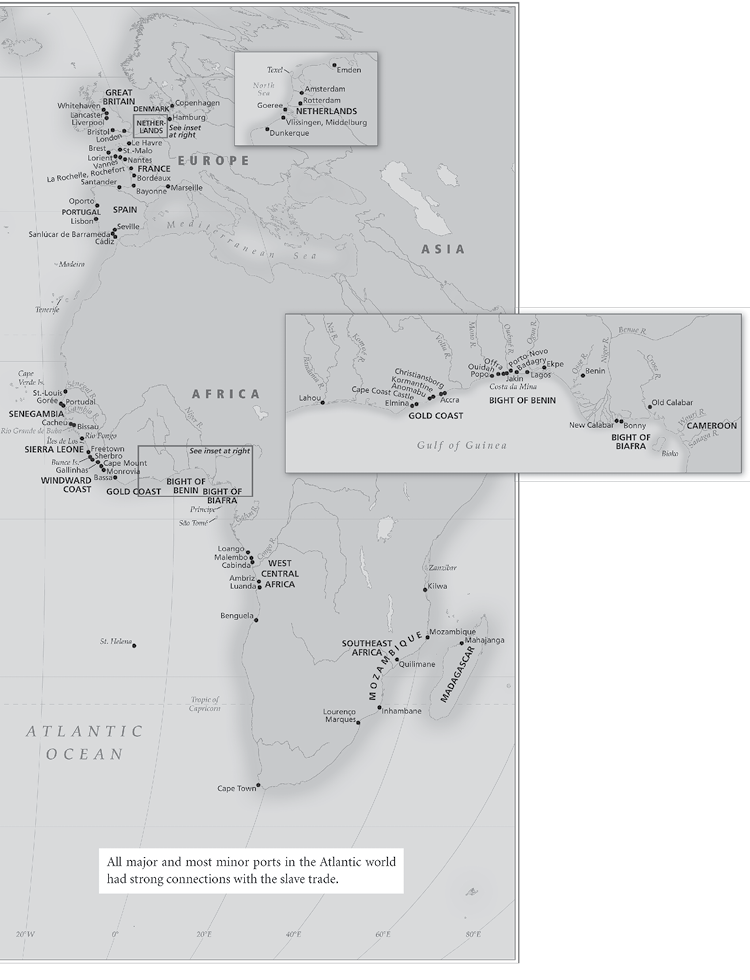Preface
In March 2013 more than twenty-five scholars from Europe, Africa, the Caribbean, and North and South America participated in a conference at Emory University to discuss cutting-edge research on the growth, transformation, and halting demise of slavery and the slave trade in the Atlantic world. Distinguished senior and leading junior scholars presented papers that drew on fresh qualitative, quantitative, and digital scholarship to cast bright light on both enduring old and important new questions. Many of the authors had used new sources or deployed innovative methods, and their subject matter ranged from economic and demographic to political, environmental, and cultural history.
This volume publishes a representative selection of papers from the conference. All have benefitted from the collective discussion that took place there, and most have been significantly revised subsequently, broadening the scope of the book and ensuring its coherence. Many scholars whose work could not be included here for one reason or another made vital intellectual contributions to the project as a whole. We acknowledge and are grateful for the participation and insights of Paul Lachance, Randall Burkett, Alex Borucki, Leonard Carlson, Clifton Crais, Kwesi DeGraft-Hanson, David Eltis, Oscar Grandio-Moraguez, Martin Halbert, Jane Hooper, Nafees Khan, Frank Lewis, Elizabeth Milewicz, G. Ugo Nwokeji, Katherine Skinner, and David Wheat. All of the papers at the conference and chapters of this book have been informed and inspired by some aspect of David Eltis’s monumental work on the history of slavery and the slave trade in the Atlantic world. To him, and in recognition of the many important ways he has transformed these fields, we appreciatively dedicate this volume.
International conferences are expensive undertakings. Neither the initial conference nor the book that has grown out of it would have been possible without the generous support of Emory University’s History Department, Laney Graduate School, Woodruff Library, Provost’s Office, Hightower Fund, Conference Center Subvention Fund, African American Studies Department, Institute of African Studies, Graduate Institute of the Liberal Arts, Fox Center for Humanistic Inquiry, Vann Seminar, and J. Harvey Young Lecture Fund. Harvard University’s W. E. B. Du Bois Research Institute also contributed very generous funding. We thank Toyin Falola, series editor, Rochester Studies in African History and the Diaspora, and Sonia Kane, editorial director, University of Rochester Press, for enthusiastically supporting the development of the book, and two anonymous readers for their thoughtful critiques of the manuscript. Richard Roberts provided valuable comments on the introduction.
As readers will see, several chapters make use of data from Voyages: The Trans-Atlantic Slave Trade Database (http://www.slavevoyages.org). The Voyages database underwent its first major update between the time these chapters were written and publication. In most cases, the update did not affect evidence cited in chapters. The update did, however, change the way the database generated direct links to specific database queries. In notes and tables, the editors have retained the authors’ original access dates and replaced the accompanying links as necessary.


Major regions and ports in the Atlantic world, 1501–1867. Adapted from David Eltis and David Richardson, Atlas of the Transatlantic Slave Trade (New Haven: Yale University Press, 2010), map 6, pp. 10–11. Reproduced by permission from Yale University Press.